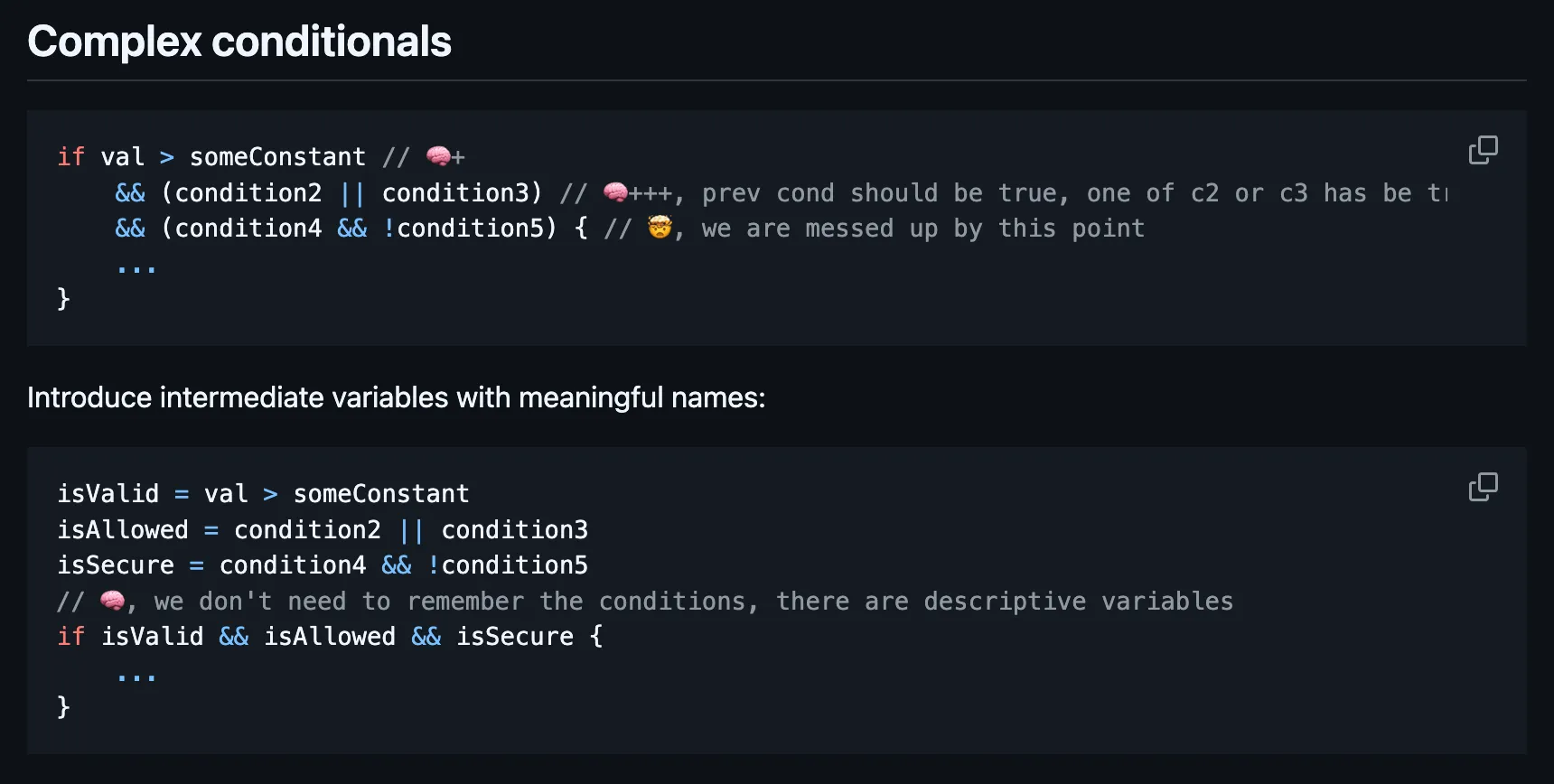Programming | Functional Programming | Software Engineering | Agile No One Likes Cognitive Load: But Whose Cognitive Load? May 18, 2025 
Neil Chaudhuri
LinkedIn 

Neil Chaudhuri
LinkedIn ![]()
Addy Osmani works at Google as an Engineering Leader on Chrome and is a renowned author and speaker. He posted advice on LinkedIn that I would summarize this way: The impulse to write “clean code” usually add complexity that increases cognitive load and only makes things worse, so your goal should always be reducing cognitive load rather than writing clean code. I have some experience with this.
I once worked on a code base that had the cleanest, most elegant code I have ever seen, and I couldn’t make sense of it at all. Interfaces with one method and one- or two-line functions strewn throughout. They were very proud of it too. You would find comments like ”// Applying the Strategy Pattern here.” It was like they wrote code for a conference talk instead of a customer. So I agree completely with Addy in principle. It is more important that code is easy to reason about than that it’s “clean,” but there is one big problem:
Different teams find different code easy to reason about.
Take this example from the GitHub repo Addy cites:

This cosmetic change doesn’t ease the cognitive burden or fix the real problem, which is that conditionals are inherently complex. I’d say the solution that fixes the problem is to introduce a state machine to eliminate the conditionals and to guarantee that all states are accounted for. State machines are clear, explicit about intent, and shift feedback left by informing you of errors at compile time, but of course someone else might say they find state machines complicated.
This goes for lots of coding concepts. I also find that static types and immutability reduce cognitive load, but a JavaScript or Python dev might not be so sure. The GitHub page warns of modules that are too small or too big, but how many lines of code is the sweet spot in between?
I think the right strategy is to reduce cognitive load but in a manner specific to your team. How? Here are some ideas:
- Use your feedback mechanism, whether it’s pair programming or code reviews in a PR or even AI, to have conversations about what makes sense. Build a team consensus. Conversations can be informal too.
- Once you have some team heuristics on what your code should look like, enforce them where possible with Architectural Fitness Functions using tools like ArchUnit or PyTestArch. Or AI.
- Be specific in your AI prompts or better yet in AI config files (e.g.
.cursorrules,.junie/guidelines.md,.goosehints, etc) about what the code it generates should look like to conform to team norms.
So don’t worry about making your code clever or “clean.” Remember that your primary responsibility is to your team, your leadership, your organization, and your customer—not to yourself for coming up with stimulating intellectual challenges you’ll enjoy. Figure out what works for your team to make code as simple to read, understand, and maintain as possible.